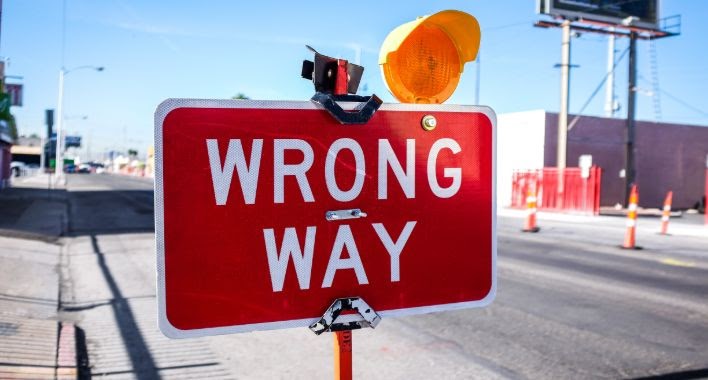Have you ever had to make a hard decision? Whether in your personal life or working life, isn’t everyone afraid of making a mistake? Generally speaking, yes. Unless there is some mental health circumstance (a pathology, a very severe intelligence deficit) everyone experiences fear, which is one of the basic emotions – in fact, we share it with many animals. Of course, this includes the fear of being wrong, of making bad decisions, of hurting someone, etc. Without that fear, as without the other emotions, life in society would be chaotic and would end up becoming extremely aggressive as well as reckless.
Why is there so much fear when you make a hard decision?
In some people, the fear of making mistakes can take up an excessive amount of space. As always, this is due to an interplay of factors in which it is often difficult to distinguish which are the causes and which are the effects of others. In this dynamic, however, we can, first of all, observe intrapsychic characteristics, i.e. relating to the individual’s own personality, coping style, or cognitive style.
Everyone is afraid of making mistakes, the question is what tools they possess to regulate this fear so that it does not fail to be useful.
In this group, we would include being more insecure, even catastrophic (people who always judge the worst possible consequence as the most probable among all the possible ones), less confident in their abilities and skills, withdrawn, perfectionist, or slower when they make a hard decision. Either because they do not handle too many options at the same time or because they process the options they handle slowly… or simply because of a very obsessive functioning, or simply by a very obsessive operation (going over and over again all the pros and cons of the different options) and, therefore, not very fluid and spontaneous.

In addition to these intrapsychic factors, the experiences we have had in life are also very influential. For example, if we have made serious mistakes in the past, it is perfectly normal (and useful) to be very afraid when we make a hard decision. In fact, it is a sign of intelligence, since this emotion will prepare us to take preventive measures.
Everyone is afraid
Everyone, in certain situations, should be afraid of making mistakes. The opposite would be typical of narcissistic people, disconnected from their true capabilities and shortcomings, which can lead them to perform reckless or harmful behaviors for themselves or other people.
Obviously, in the case of very simple tasks or tasks which we know how to do well, this fear descends to zero or to a very acceptable level. For example, if I have never made a Spanish omelet and I am making it my first time, it is normal to have a certain anxiety about how it is going to turn out. However, if I have prepared this dish before, I will make sure it turns out well, rather than worrying (worry is the cognitive correlate of the emotion fear). I want the omelet to turn out well, but I am confident that it will because I’ve made it before.
This applies to a novice surgeon or one who has performed the same operation hundreds of times. Or to an actor who goes on stage: how many times do very veteran and well-known actors say that they still feel nervous when they go on stage. Of course: they are alive, they take their task seriously, they understand each performance as something new even if it is repeated, but obviously, they have the weight of experience to properly regulate that uneasiness or fear, so that it does not become paralyzing.
We must also bear in mind that, in a certain sense, fear is directly proportional to what we consider to be at stake with each behavior or decision, but that it is accompanied by other factors that can attenuate or trigger it.
How fear can paralyze you
Fear and insecurity are practically synonymous. Fear is the emotion related to the perception of a threat to our integrity or well-being, i.e., fear is what we feel when we do not feel secure.
Of course, there are people who are more or less self-confident, have good self-esteem, are flexible, optimistic, well conformed, open to experience, indulgent with themselves, etc. These characteristics protect them from getting paralyzed when having to make a hard decision. This does not mean that they are not afraid of making mistakes (the absence of this fear is not a virtue, but a problem), but they have it in manageable doses and know how to transcend it, probably because they know that, as they are human, they can make mistakes and that, if that happens, they will know how to handle those mistakes well without blaming themselves excessively for them.
The analysis that traps us
In recent years, the expression “paralysis by analysis” has become very fashionable. This paralysis is the result of an excessive desire to control different factors that influence our lives and the fantasy that, even in a very complicated decision, we can – if we review everything over and over again – reach the perfect and aseptic decision in which the level of error will be zero and the level of satisfaction will be optimal.

We can encounter this phenomenon when we are faced with very transcendental life decisions but also in much more banal situations such as when deciding whether or not to buy a lamp, for example. When paralysis becomes very extreme, it generates a lot of anguish, which is nothing more than a reaction of the fear family. This anguish is accompanied by a storm of doubts that releases lightning bolts in our minds: will I be doing the right thing, what will be the consequence of my decision?
On the other hand, this anguish can be diluted once the situation is unblocked and a path is chosen, which allows us to see the positive results of having taken that path, but until that point is reached, the road can be really difficult.
In short, it is good to examine all possible scenarios when you have to make a hard decision and measure the different risks to which you are exposed in each of the possible alternatives. In the end, however, you need to learn how to make a hard decision. Obviously, easy or perfect decisions exist, but they are made quickly and do not generate conflicts. In fact, many times we make them so quickly that they even seem automatic.
Sometimes the only possible decision is to stop trying to decide. But consciously.
However, if a make a hard decision, even if it is very difficult, it means that none of the scenarios is perfect and that they all have their pros and cons, but we must choose one of them if we really want to move forward. When, for whatever reason, we come to the conclusion that it is impossible for us to choose an option, experts in the so-called “paralysis by analysis” recommend consciously assuming that it is not the time to make a hard decision and that is precisely what the decision becomes. That is, if we definitely do not see it clearly, then it is better to let the issue rest and get out of that unproductive labyrinth for a while so that we can put our energies into other matters.
How to make hard decisions with ifeel’s help
Maybe right now you are immersed in an important decision process from which you have not just come out, or maybe you already know which option -at least in your mind- is the most convenient for you but you do not take the definitive step and you know that this is only making things worse. If this is your case then it is important that you consider getting some kind of external help or advice.
At ifeel, we can help you with expert advice from our team of leading psychologists. This will allow you to see things from a renewed and neutral perspective and can help you to take a final look at the pros and cons of the options you have in hand. Don’t give it another thought and put yourself in the hands of a good psychologist: we are here to help you.









